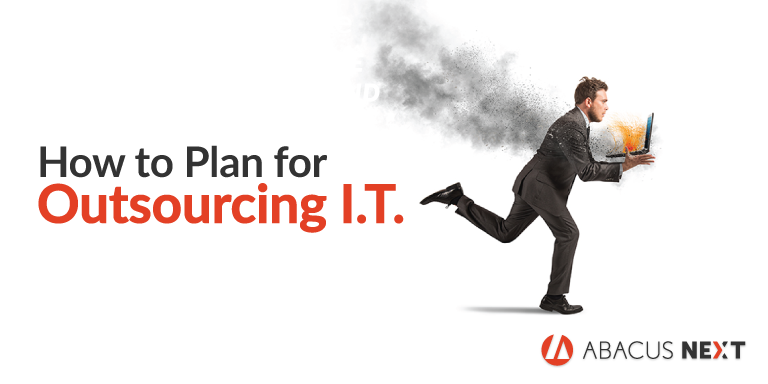How to Plan for Outsourcing IT


When I started my software company in 2011, I investigated the cost of servers, support, and the required databases and applications to build my software. We hired graphic designers and a website company, and then brought in a programmer and a separate person for infrastructure.
I was on the cusp of the cloud services offered by Amazon and we did not end up spending that capital. Cloud technology would continue to grow exponentially, particularly in the private cloud space, making significant headway over the next five years as businesses evolve from being tech-savvy to cyber-savvy.
Emerging technologies will include artificial intelligence (AI) and blockchain. The Internet of Things (IoT) will continue its exponential growth. Data becomes the currency for all businesses and its protection is paramount to business continuity. One can look to the recent incident where IoT devices were hacked and disrupted major sites like Amazon and Netflix to see how our world is changing.
The major data breaches from the last two years are front of mind, and not just for those who rely upon internal servers, but also businesses that use the cloud. Below are a few tips for data protection and breach prevention:
- Develop a comprehensive information security plan around security required to prevent breaches. If you do not have this capability in-house, outsource the plan and the next step also.
- Perform a risk assessment on the security plan.
- Use appropriate encryption on all devices, including mobile.
- Employ a Mobile Device Management (MDM) solution to protect any confidential data on mobile devices by remotely locking or erasing lost or stolen devices.
- Create a Bring your Own Device (BYOD) policy where appropriate and limit users and access accordingly.
- Create a data retention and destruction plan.
- Engage in pre-breach planning exercise with the appropriate internal and external resources.
- Create the internal breach responder team to be prepared.
As businesses move to the cloud, there will be an increase in the bundled or all-in-one platforms versus those that require multiple logins. User experience feedback and a demand for simplicity will drive this interoperability between systems, likely all in the cloud.
The role of in-house information technology (IT) staff will evolve from managing on premises to that of change agent managing the implementation and necessary integration of all the new cloud platforms. Many of the data protection issues and breach prevention above can be handled by a private cloud service, like Abacus Private Cloud (APC).
This is an exciting time for IT professionals as their role continues to expand. Technology is used in both personal and professional worlds; being unplugged is nearly impossible. Therefore, with the cloud technology explosion; the intersection of work place and home technology; and the IoT, IT staff are required to move beyond their traditional role as a gatekeeper or policy enforcer. Instead, cloud technology frees up IT professionals from routine maintenance tasks that are mundane and allows them to become change agents. Technology can be leveraged for efficiency and improved client experience plus free up all departments from many administrative tasks.
Businesses need to provide the appropriate education training for IT as their responsibilities morph into enablers who support implementations across the organization. Security and application training will enable IT to create workable policies, balancing security and access to theseapplications. Regardless of what cloud system is used for the office or workflow management, IT must be certified to provide support to the business users.
IT’s new role includes being more proactive and driving with the technology strategy to best serve internal business users, and that of course includes security. Businesses can save significant money by using the cloud. However, the private cloud will allow them additional security and free up time to integrate all systems to provide seamless experiences for both external and internal customers. The shift to cloud technology will provide an abundance of opportunity for IT while leveraging the power of the cloud.
By: Mary Juetten
About Mary: Mary is aninternational writer, speaker, and mentorwho founded Traklight.com, the only self-guided software platform that creates your custom intellectual property (IP) strategy and assesses business risk. She has dedicated her more-than-30-year career to helping businesses achieve and protect their success. In 2015, Mary co-founded Evolve Law to accelerate the adoption of technology within the legal industry.